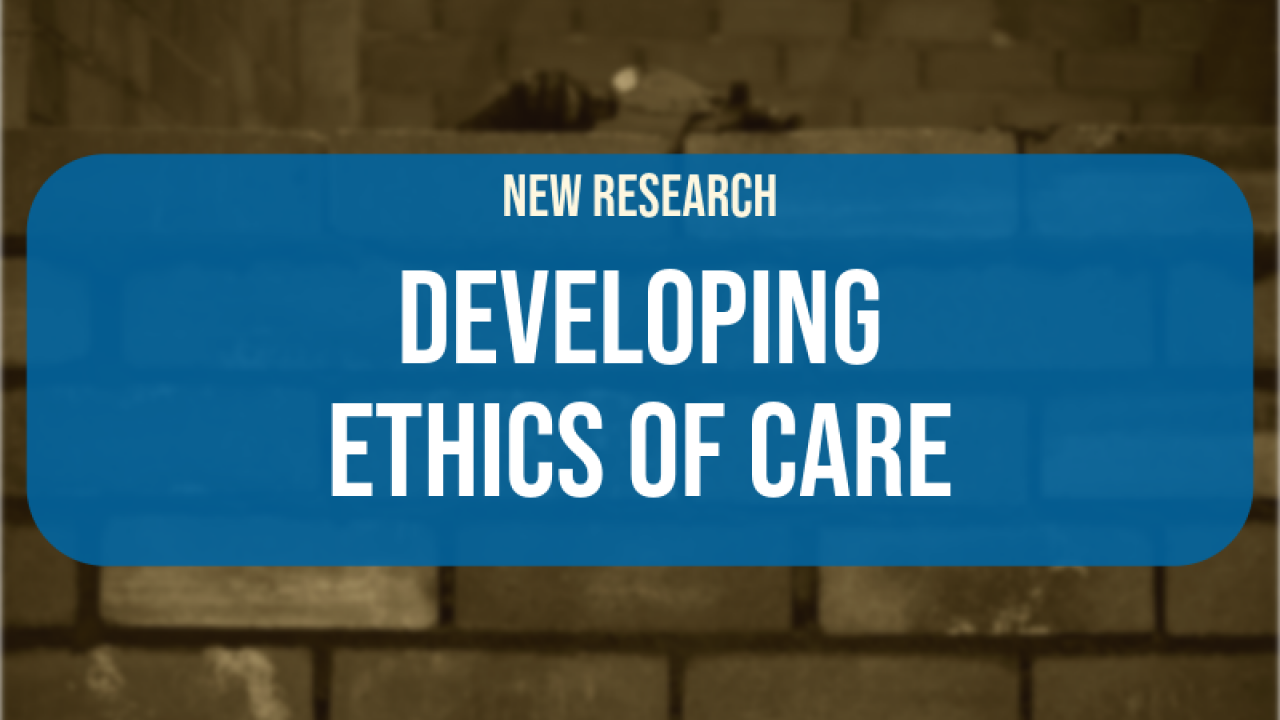September 16, 2024
Developing ethics of care for public communication: Multi-level agency matters

Read the full Public Relations Review publication here: https://doi.org/10.1016/j.pubrev.2024.102495
Ethics of care (EoC) originated from the American psychologist Carol Gilligan’s feminism scholarship, which challenges the conventional, male-centered approaches to constructing moral values around what ‘ought to be’. By incorporating feminist values such as cooperation, respect, compassion, and sensitivity, EoC centers on fostering reciprocal relationships and empathic care to nurture people. Especially EoC promotes a dialogue between masculinity and femininity in discussing morality, aimed at building an inclusive and just society that seeks to offer value for all human beings rather than exclusively for people defined by gender.
Public communication scholars have recently drawn on this concept to explore how EoC can be implemented in specialized practices and/or organization-public relationships. Typical examples include how to enact EoC in CSR, internal communication, government relations, and public information campaigns, as well as how to demonstrate an organization’s care while building relationships with strategic publics.
Although all these scholarships have fruitfully elevated EoC as an integral part of organizational practice, it remains unclear how PR practitioners, as individual moral agents, can reconcile multiple competing needs and/or ethical dilemmas to achieve and advance this value to a professional level that generates positive social impact. This knowledge gap brings agency –– the capacity of actors (e.g., individuals, collectives) to act independently and reflectively while interacting with contexts –– to the forefront.
Our study sought to explore this central issue: how does the agency, ranging from the individual, organizational, and professional levels, articulate and shape EoC in public communication practice? Specifically, we attempted to address two questions:
- How is EoC manifested within professional communication practice?
- How do PR practitioners view or exercise their agency associated with EoC, as an individual moral agent, an employee, and a professional?
We designed a dual phase to gain insights at two levels: First, a narrative analysis of award-winning PR campaigns by the Public Relations Institute of Australia (PRIA, now rebranded as Communication and Public Relations Australia) (Phase 1); Second, elite interviews with PR practitioners and executives, mainly recruited from the award-winning campaign developers but also including PRIA’s general members (Phase 2).
What we learned
Our study results revealed how EoC is interpreted and enacted in a variety of ways shaped by actors’ (e.g., individuals, organizations) agency––reflective interplay with different contexts, although the term ‘EoC’ is not necessarily used by practitioners or named in award-winning campaigns directly. Our key findings are as follows:
A fluid understanding of EoC
Both the campaign narratives and interview data described a wide range of ‘care values’: human wellbeing, human rights, human dignity, cultural sensitivity, mutual benefits, privacy rights, reciprocity, trust, reassurance, empowerment, protecting a vulnerable group (e.g., children), and social justice. These reflected a fluid, context-specific approach to understanding and embodying EoC in practice, with a key spirit of nourishing human beings through reciprocal relationships and emotional fulfilment while not bending the values of justice and legitimacy. Despite fluidity, empathy––the capacity to understand others’ needs, feelings and desires––is regarded by the participants as a fundamental to EoC.
Agency entails reflection of contexts, finding the balance, and self-care
We find that the agency to enact EoC starts with reflecting on practice contexts, mainly containing two aspects:
- The care receivers’ (i.e., target audiences) genuine needs and desires
- The enabling and constraining environments where care practices are situated
Based on this, the moral agents (i.e., PR practitioners) strive to navigate multiple contexts and find the right balance between competing needs/priorities such as personal disposition vs professional standards, commercial imperative vs public interest, and organizational benefits vs human wellbeing. Also, while extending EoC to others, the agency entails moral agents’ self-care––to be cognizant of self-needs and emotions––as a precondition of delivering EoC to others.
Multi-level agency matters to EoC
We found that enacting EoC involves agency from individual, organisational to professional levels. The individual agency lies in personal motivation and effort to incorporate EoC in everyday work which, therefore, interplays with personal virtues and character traits.
For example, when constrained by organisational resources, individuals may take agency in negotiating with senior management to create a favourable environment of supporting EoC. At the organisational level, collective agency involves fostering an organisational culture of EoC or enabling a link mechanism between caregivers (e.g., organizations or clients that PR consultancies serve) and care-receivers (organizations’ stakeholders or strategic publics).
In doing so, EoC transcends from individual choices to organizational pursuit. Professional body (e.g., PR associations) can also take agency to establish EoC alongside other ethics (e.g., deontology/code of conduct) through recognizing EoC as an essential component of award-winning campaigns or practices. Such industry-level recognition will facilitate growing EoC as a professional identity of PR to benefit society in large.
What are the implications for PR theory and practice?
Our findings benefit PR theory building around ethics in two aspects: First, we should see EoC as ethics that are employed (and employable) by moral agents in the professional, organisational, personal, social and justice spheres. PR ethics theory building should explore such multi-level and multi-lateral integration of care into different parts of professional and social life through fostering ‘caring citizenship’, namely, making EoC a responsibility of everyone, not just PR practitioners.
Second, scholars should emphasise the pivotal role of agency to advance EoC as a level-transcending and encompassing framework to facilitate building a more respectful and robust profile for public relations profession.
The practical implications for PR professionals include making most of this multi-level agency to tailor the caring values and practices to address target audiences’ specific needs, concerns, and desires, build empathy to facilitate mutual understanding and benefits, mobilise care-receivers’ agency to exchange value and make the caring relationship reciprocal and sustainable to both parties (i.e., caregivers/caretakers and care-receivers). Eventually, practicing EoC should amplify the positive social impact of public communication for individuals, organisations, and broad communities.
